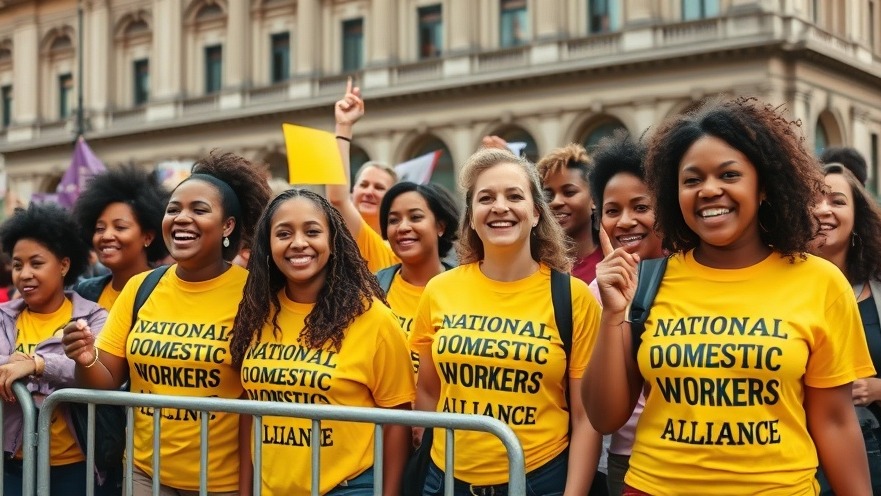
POWER Act: A Game Changer for Hospitality Workers
Philadelphia's newly passed POWER Act, or Protect Our Workers — Enforce Rights, represents a pivotal shift in labor rights, especially for non-unionized and non-traditional workers. This legislation strengthens protections for over 750,000 individuals, encompassing domestic workers and gig economy employees, pushing for fair practices where traditional labor laws have fallen short.
Understanding the Need for Change
The urgency for laws like the POWER Act stems from the rampant inequality faced by many workers today. For example, Sandra Bryant, a domestic healthcare provider, learned firsthand about the systemic gaps in worker protections. When she required medical leave, her employer denied her request, a reality that echoes across various sectors. Many hospitality professionals, including small-scale hotel owners and Airbnb hosts, may unwittingly perpetuate similar injustices. As ethical entrepreneurs, understanding such hardships not only shapes our practices but can inspire transformative action.
Building on Previous Efforts
While this isn’t the first effort to support non-traditional workers in Philadelphia (the Domestic Workers Bill of Rights was enacted in 2019), the POWER Act fills a significant enforcement gap that existed. Although previous laws were well-intentioned, they lacked the means to ensure compliance, rendering them ineffective. Nicole Kligerman from the National Domestic Workers Alliance underscores the importance of not just having laws “on paper” but ensuring they are actively enforced. This sentiment is particularly relevant in the hospitality sector, where a lack of structured services can lead to exploitation.
The Significant Impact on Worker Rights
With the POWER Act, Philadelphia aims to empower workers by providing essential tools that facilitate their rights. These measures are particularly critical in the hospitality sector, where non-traditional working patterns often lead to under-recognition and exploitation of labor. The act creates an avenue for conformity to worker rights and can transform local economies—shaping a more sustainable and ethical hospitality landscape.
Future Predictions for Labor Rights
The passing of the POWER Act could set a precedent not just for Philadelphia but for cities nationwide. Worker protections are essential for fostering a healthier economy and society. As we approach a future where corporate sustainability goals become more prominent, enacting broader, effective labor laws will likely be a vital part of that evolution. For hospitality professionals, embracing sustainability not only aligns with ethical practices but could also influence customer loyalty and brand reputation.
Encouraging Dialogue and Action
The passage of the POWER Act serves as a call to action. We must engage in discussions about worker rights and the importance of fair treatment in every level of employment. Boutique hospitality professionals can leverage this momentum by integrating sustainable practices into their workflows, focusing on areas such as off-grid solar initiatives, urban farming, and advocating for eco-conscious practices in employee treatment.
Making Contributions Towards a Fair Future
As the hospitality industry continues to evolve, it’s crucial to stay informed and proactive about labor rights. Exploring ways to support your workers not only builds a better work environment but can contribute positively to your brand. Seeking guidance from resources and local organizations that advocate for worker rights can amplify your impact in this area.
As we stand on the brink of change, let us strive to create a hospitality industry that truly aligns with our sustainability goals and preserves the rights and dignity of all workers. **Join the dialogue today—learn how your practices can foster a positive change in your community**.
 Add Row
Add Row  Add
Add 




Write A Comment